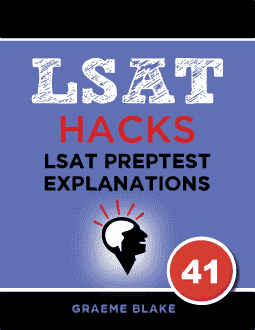QUESTION TEXT: Some argue that laws are instituted at least in part to help…
QUESTION TYPE: Most Strongly Supported
CONCLUSION: The primary function of law is to help order society, regardless of further moral aims of the law.
REASONING: Sometimes judges make exceptions to the law for moral reasons (thus showing that law is not necessarily instituted to establish a moral framework for society).
ANALYSIS: The single piece of evidence given is that judges sometimes make exceptions to the law for moral reasons.
This evidence doesn’t really help either conclusion much. It could show either that the law exists for moral reasons (and so it can take into account moral concerns), or that law exists for the functioning of society (and so it can account for moral concerns where that would lead to a better functioning society).
___________
- CORRECT. Yes, this is about all we can conclude. On at least some occasions the law accounts for moral concerns.
- We can’t conclude this. Even the stimulus concedes there may be “further moral aims of the law.”
- We don’t know that they tend to receive such protections; we only know that on occasion they have.
- This goes too far. The stimulus concedes law can contain moral aims, as long as the ordering of society is the primary goal. (Note also that the stimulus’ claim is not proven.)
- Hard to say if it is the best way. The stimulus argues merely that if we are making law, then the ordering of society should be the aim of law. But there might be better ways of achieving that goal.
Recap: The question begins with “Some argue that laws are instituted at least in part to help”. It is a Most Strongly Supported question. Learn more about LSAT MSS questions in our guide to LSAT Logical Reasoning question types.


Leave a Reply